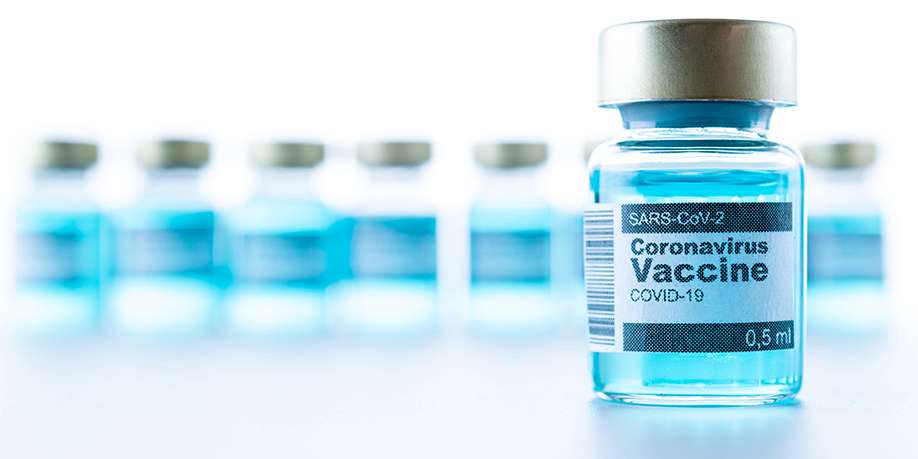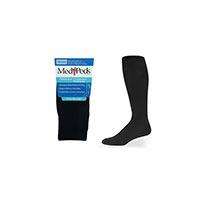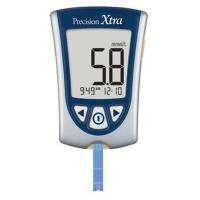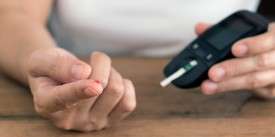
Coronavirus (COVID-19) Vaccines for People with Diabetes: What you Should KnowCoronavirus (COVID-19) Vaccines for People with Diabetes: What you Should Know
  © Maksym Velishchuk | Dreamstime.com As many people know by now, COVID-19 is an infectious respiratory disease caused by SARS-CoV-2 virus and associated with such common symptoms as shortness of breath, fever, loss of taste or smell, runny nose, cough, sore throat, fatigue, headache, nausea or vomiting, and diarrhea. Although most of the people who contract COVID-19 get no symptoms at all or just mild to moderate respiratory illness, from which they recover relatively quickly without need for medical attention, some people become seriously or even critically ill. According to the statistics, majority of people developing serious symptoms and further severe complication, including heart and lung damage, respiratory failure, kidney failure, and death are those with preexisting medical conditions such as diabetes. That happens because diabetes weakens a person’s immune system. Consequently, even though diabetes by itself doesn’t increase the chances of getting infected with COVID-19, a weak immune system makes it harder for people with diabetes to fight infections. Besides, diabetes causes increased blood sugar levels and according to IDF (International Diabetes Federation), COVID-19 develops particularly well in people, whose blood sugar is higher than normal. If a person with diabetes have one or more complications often associated with diabetes, such as heart disease, blood clots, their risk of severe COVID-19 consequences is even higher. That is why, if you have diabetes, it is extremely important to get vaccinated from COVID-19, unless your doctor suggests otherwise. COVID-19 vaccines are designed to help your immune system fight off the infection. If you have been exposed to a person infected with the virus, the vaccine reduces your chances of getting infected or suffering from serious complications of the disease. Several countries in the world offer COVID-19 vaccines. In the United States, there are currently three COVID-19 vaccine manufacturers that provide their vaccines to general public – BioNTech-Pfizer (Pfizer), Moderna, and Janssen (Johnson & Johnson). The vaccines from all three of these manufacturers are approved by CDC (Centers for Disease Control and Prevention) and considered safe for people with diabetes. The vaccine from each manufacturer has slightly different guidelines. As of January 2022, the Pfizer vaccine is the only one recommended for children ages 5 to 15, while Modern and Johnson & Johnson vaccines are authorized for use in people 18 years of age and older. An individual should receive two doses of Pfizer vaccine 21 days apart, while a person, who received the first dose of Moderna vaccine should get the second dose 28 days after getting their first. Johnson & Johnson vaccine requires only one dose. As COVID-19 variants evolve, the booster shot (the third shot of Pfizer or Moderna vaccine and the second shot for those, who received Johnson & Johnson vaccine) becomes highly recommended to empower the immune system against the virus. Pfizer booster shot is recommended for people 12 years of age or older and Moderna third dose is recommended for people from the age of 18. The booster shot from both manufacturers should be administered at least five months after getting the second dose. Johnosn & Johnson second shot is recommended for people 18 years and older, after at least two months from receiving the first dose. Although the COVID-19 vaccines are considered and already proven to be safe, there is still a possibility of minor side effects in some diabetic patients as well as in people without the disease. Those side effects include redness, swelling, and pain at the injection site, headache, fatigue, fever, chills, and nausea. Some diabetic patients may experience higher than normal as well as lower than normal blood sugar levels for a few days after having the vaccine, so it’s especially important to monitor your blood sugar closely for a couple of weeks after the vaccination. You should also continue taking your diabetes medications as usual, since there is no known interaction of diabetes medications with the COVID-19 vaccines.
| |||||||||||||||||||||||||




























